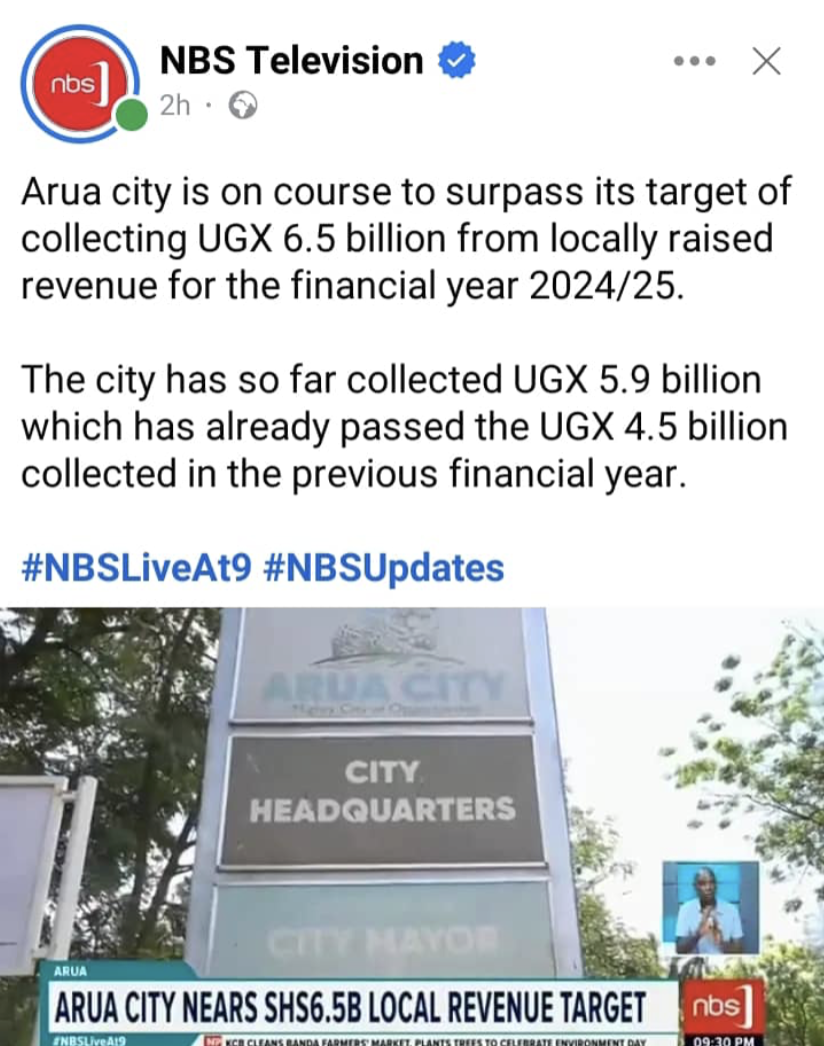Stimulating Local Government
Stimulating Local Government revenues provides sustainable benefits.
Proudly displaying the Fiscal Social Compact in Arua City.
The USAID-financed DRM4D project in Uganda ran from January 2020 to July 2024. A U.S. company, Cadmus Inc. (https://cadmusgroup.com/), administered the project, and I was the Chief of Party for the duration. At the local government level, the project forged strong relationships with the mayors, town clerks and revenue collection personnel in Uganda’s 10 new cities. The project provided computers to the cities and worked with them to develop their Domestic Revenue Improvement Plans, which then led the project to focus on supporting the cities to better collect their primary sources of revenue – Property Tax, Business Licence Fees, Markets Fees, Street Parking and Outdoor Advertising revenues.
Valuation of properties for Property Tax purposes
DRM4D engaged professional property valuers and valued 165,000 properties across the 10 cities, providing GPS coordinates and pictures of each property along with full contact details of the owners. This new digitized database of properties vastly increased the Property Tax database of the cities, which had fewer than 20,000 properties valued from paper-based systems when the project commenced. The revaluation exercise also brought considerable benefits to the property owners, who now had professionally valued assets that could be used as loan collateral and for other business reasons. A classic win-win exercise.
Business Licence Fees
DRM4D worked with the cities to have them all regraded for the purposes of setting new business license fees. The project also helped some cities with the rollout of IT systems to better collect street parking fees.
Arua City demonstrates its improved revenue collections.
Local Government websites
DRM4D helped the cities to prepare new modern and well-written websites. These were combined with job-specific email addresses for key city officials that helped professionalize their on-line presence and give them the basis for engaging with other cities on international twinning arrangements.
Fiscal Social Compacts
The project prioritized helping the cities to better engage with the taxpayers and property owners so that a clear connection was established between increased own-source revenue collections and improved service delivery at the local level.
USAID-DRM4D toured the cities to bring taxpayers and officials together to agree on written Fiscal Social Compacts. This unique piece of work established strong trusting relationships between local taxpayers and city officials and mayors, and it set out clearly the precise services that would be provided in return for the payment of taxes.
Lira City acquired this brand-new road grader in the first quarter of 2025, long after the USAID-DRM4D project had ended, proving the undeniable benefits of revenue stimulation. Other cities such as Jinja, Mbarara and Mbale made similar investments.
Discussing revenue collection strategies in Jinja City with the mayor and officials.
The project saw a doubling of own-source local revenues from around UGX 19 billion in 20/21 to around UGX 41 billion by the end of June 2024. Revenues were expected to double again by 25/26.
The increased revenues allowed the cities to provide better services across the board. Notably, many of them used their newfound wealth to purchase road graders and other road maintenance and improvement machinery. The better road networks, in turn, facilitated greater trading and commerce in the cities, leading to additional revenues. These investments continued long after the USAID project ceased its support, proving the undeniable benefits of revenue stimulation at the local level.




